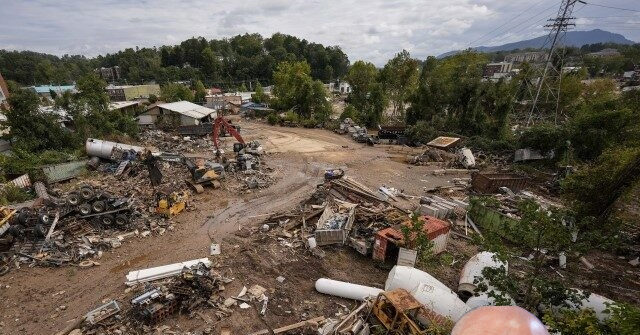Department of Homeland Security (DHS) Secretary Alejandro Mayorkas faces significant backlash for his statement that the Federal Emergency Management Agency (FEMA) has exhausted its funding to assist Americans affected by disasters. The criticism intensifies as the South and East Coast grapple with the aftermath of Hurricane Helene, highlighting a perceived lack of urgency and effectiveness from FEMA. Observers point to a stark contrast between the agency’s financial woes for assisting American citizens versus the billions of taxpayer dollars allocated to support migrants. This controversial spending appears to undermine the agency’s primary mission of disaster relief while maintaining an expensive operation focused on housing and supporting migrants.
The current migrant influx, particularly from Haiti, has raised concerns over resource allocation. As thousands of Haitians settle in various states such as Louisiana, Ohio, and Pennsylvania, many believe that federal policies have inadvertently encouraged this influx. Advocates for local Americans argue that the arrival of migrants has strained local resources and services, particularly in areas already struggling with economic instability. This situation has drawn sharp criticism during political debates, including recent exchanges where GOP nominee JD Vance pointedly stated that Biden’s border policies are contributing to rising housing costs for average citizens.
Mayorkas recently claimed, “We are meeting the immediate needs with the money that we have,” and emphasized that FEMA faces a funding shortfall as severe weather events continue to threaten the region. This statement comes in stark contrast to his previous assertions that FEMA was well-prepared for the hurricane season. Many are questioning the inconsistency and timing of the DHS’s statements, especially in light of the financial figures revealed regarding the administration’s spending on migrant support. Reports indicate that funds from FEMA’s budget—over a billion dollars—were directed toward programs that assist undocumented immigrants rather than focusing solely on disaster relief for American families.
Critics have made strong allegations regarding the misappropriation of FEMA funds, suggesting that essential resources intended to help victims of natural disasters are instead being utilized for migrants. Representative Ashley Hinson of Iowa voiced her discontent, emphasizing that FEMA should prioritize American citizens and their needs above all else. Critics argue that the current administration’s policies are misdirected and representative of a broader failure to secure adequate assistance for those most in need, especially as multiple states face financial strain due to increasing migrant resettlement.
The financial fallout from the Biden administration’s approach to immigration has drawn substantial scrutiny. Analysts estimate the additional costs borne by taxpayers come to approximately $600 billion over two years when considering federal and state expenditures attributed to the migrant crisis. These figures reflect a significant impact on taxpayer money not only at a federal level but also at the municipal and state levels, which face higher demands on public resources amid growing administrative challenges. With taxpayers feeling the burden, frustrations continue to mount over the perceived favoritism shown toward illegal immigrants over legally domiciled American citizens.
In response to concerns surrounding FEMA’s budget and its allocation towards supporting illegal immigrants, Representative Nancy Mace from South Carolina has taken action by introducing a bill aimed at terminating this type of spending. This proposed legislation underscores a growing consensus among certain lawmakers seeking to restore a focus on American citizens in the wake of disasters. The ongoing discourse surrounding these issues illustrates a broader political divide over immigration policy, federal funding priorities, and the responsibilities of federal agencies in supporting vulnerable populations during times of crisis. As the debate continues, the ramifications for both citizens suffering from natural disasters and the influx of migrants remain complex and unresolved.

